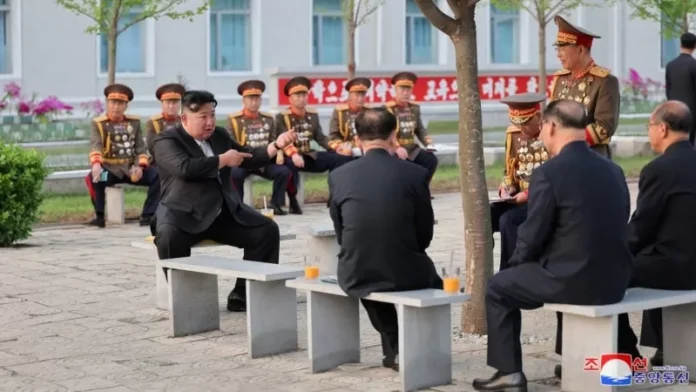The Biden administration’s approach towards North Korea has been met with mixed reactions, particularly from one of Washington’s key allies in Asia, South Korea. While the US has expressed willingness to engage with Pyongyang and consider interim steps towards denuclearization, South Korea’s national security adviser Chang Ho-jin has publicly stated that there are no such steps and that complete denuclearization remains the ultimate goal.
This public rift between the two allies highlights the different strategies and priorities each country has when it comes to dealing with North Korea. The US, under the current administration, has shown a willingness to consider interim steps as a way to build trust and make progress towards denuclearization. This approach, however, is not new and has been tried and failed by previous administrations.
In response to the US National Security Council’s confirmation of their willingness to consider interim steps, a South Korean Foreign Ministry spokesperson reaffirmed that the US will not settle for a temporary solution and will continue to push for complete denuclearization while also seeking a nuclear freeze in return for sanctions relief.
The concept of interim steps towards denuclearization involves reciprocal concessions and measures that both sides are willing to make in order to achieve the ultimate goal. This approach has been met with concern in Seoul, as it could hinder Pyongyang’s commitment to complete denuclearization in future negotiations.
Experts believe that South Korea’s strong stance against interim steps stems from their desire to maintain a united front with the US and appear resolute in their approach towards North Korea. The current South Korean administration has focused on deterrence and alignment with the US, as well as trilateral security cooperation with Japan, in dealing with North Korea.
However, some critics and officials in Seoul and Tokyo are worried that the US may shift its focus towards other goals such as confidence building and tension reduction, rather than solely focusing on denuclearization. This has raised concerns that the US may be prepared to engage in arms control talks with Pyongyang, which would effectively accept North Korea’s nuclear arsenal as permanent.
Talks over arms control or a “nuclear freeze” and other measures such as “threat reduction” or “risk reduction”, which have been mentioned by US officials in the past, are seen as equivalent to accepting North Korea as a nuclear state. This is strongly opposed by both South Korea and Japan, as it goes against their long-standing goal of complete denuclearization of the Korean peninsula.
While there are differing opinions on the concept of interim steps, it is important to note that there is a common goal shared by both the US and South Korea – complete denuclearization of North Korea. The mention of interim steps by US officials does not signify a change in policy, but rather a pragmatic approach to achieving this goal.
According to Victor Cha, senior vice president for Asia and Korea chair at CSIS, “any pragmatic implementation of denuclearization would have to include such steps, which I do not think would represent de facto acceptance of DPRK nuclear status – that is neither Washington, nor Seoul’s policy.”
In the end, it is important for the US and South Korea to continue working together towards their shared goal of denuclearization, while also understanding and respecting each other’s perspectives and approaches. As former US negotiator for the six-party denuclearization talks, Evans Revere, said, “Washington and Seoul must remain in lockstep in dealing with Pyongyang, or all prospects for progress will be lost.”
The Biden administration’s willingness to engage with North Korea and explore interim steps towards denuclearization shows their commitment to finding a peaceful resolution to the longstanding issue of North Korea’s nuclear program. It is important for both the US and South Korea to continue their strong alliance and work together towards achieving this goal in a united and diplomatic manner.

